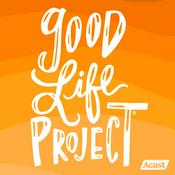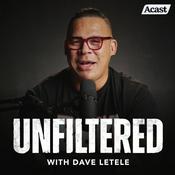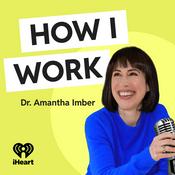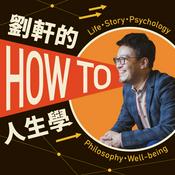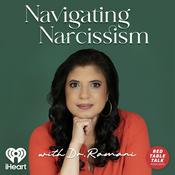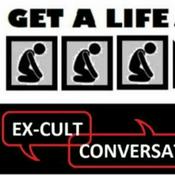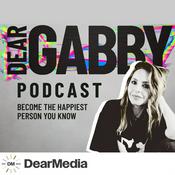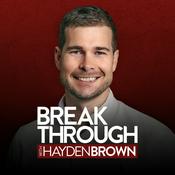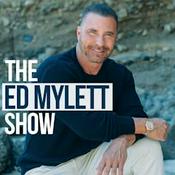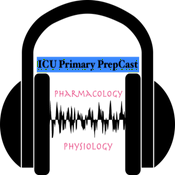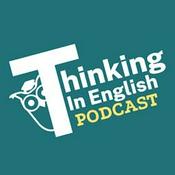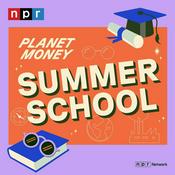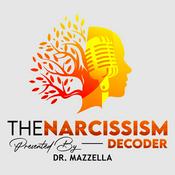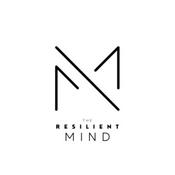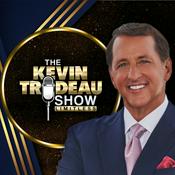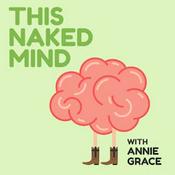476 episodes
- Disagreement is a part of everyday life, yet most of us avoid it whenever possible. Harvard Kennedy School Professor Julia Minson knows where and why our conversations often go wrong and how we can learn to disagree better.
Minson, whose research focuses on how people engage with opposing viewpoints, says fear drives avoidance. “Most of these conversations are a pleasant surprise, but people don't expect that. And so they just continue going around with the worst-case scenario in their heads, instead of exploring the reality that's out there,” she says. People worry that disagreements will be unpleasant, fruitless, or that the other person’s perspective will be shocking or even “crazy.” Research shows these assumptions are often wrong: when we actually engage, opposing views are usually more reasonable, moderate, and defensible than expected.
The problem isn’t only avoidance. Many conversations fail because participants focus on persuasion, treating arguments like battles to be won. Minson says that shifting the goal from winning to understanding changes the dynamic entirely, turning disagreement into an opportunity to learn rather than a contest to conquer.
To help people navigate challenging conversations, Minson and her colleagues developed a practical toolkit called conversational receptiveness, or the framework they call HEAR. Minson emphasizes that these skills take practice. Starting with low-stakes conflicts, like deciding when to set an alarm at home, helps build habits that carry into more emotionally charged conversations at work or in classrooms. “I really think that practicing on small, daily disagreements makes you more able to come up with the words when it's a big, important one and you're really frazzled,” she says.
In this episode, the Harvard EdCast explores how to disagree better, practical steps for transforming conversations, and the obstacles that often get in the way of constructive dialogue. - As the United States approaches the 250th anniversary of the Declaration of Independence, how should schools teach this foundational document?
Harvard lecturer Eric Soto-Shed joins The Harvard EdCast to discuss how civics education is evolving from patriotic education and action civics to media literacy and reflective patriotism. He explains why students should engage not only with the Declaration’s democratic ideals, but also with its contradictions.
In a politically charged moment, Soto-Shed argues that classrooms shouldn’t just prepare students for civic life, they should function as civic spaces themselves. The goal isn’t memorization. It’s helping young people understand that democracy is a work in progress — and that they have a role in sustaining and strengthening it. - With about one in four children in the U.S. now living in immigrant families, Harvard Associate Professor Gabrielle Oliveira argues that supporting their wellbeing should be a national priority – not just for the children themselves, but for the strength of society as a whole.
Yet for many Americans, migration is often seen as risky or even reckless, especially when it involves bringing children across dangerous borders and leaving everything familiar behind. Oliveira reframes this perspective to migration is an act of profound care.
“Almost [no one] wants to leave their homes,” she says. “All things being equal, you want to stay where you were born with the people that you know, and love, and close to your roots. Most people that are coming, they're running for their lives in many ways. So, this is not this idea of people trying to come here to take something from the society, here to take their jobs, to take their safety, to take any of that, but it's kind of almost this beautiful thing about the United States being the safe haven where things are possible, and there's hope.”
She has spent years embedded with Latin American migrant families living in Massachusetts, documenting their journeys, their struggles, and the hopes that drive them to uproot their lives, which she shares in her book, Now We Are Here: Family Migration, Children’s Education, and Dreams for a Better Life.
Oliveira explains that while public conversations about immigration center on fear and scarcity, the families she followed see education as a stabilizing force and a pathway to dignity. For parents, schooling in the U.S. represents the chance for their children to flourish, not merely academically but as kind, purposeful human beings. Yet for teachers, supporting these students can be complicated by the pressures of curriculum, testing, and limited training in trauma-informed practice or what Oliveira calls “constrained care.”
“If you're going to talk about a multicultural piece, why not actually talk about the home country of that child, and let that child write, and talk about that, and tell the stories, which then will increase trust in the classroom,” she says. “We know that if teachers, and students trust each other, the students are going to be a lot more inclined to want to engage more, to want to show up, and learn more in the classrooms versus if they feel that they cannot be their whole selves in the classroom.”
In this episode, Oliveira shares how children and families navigate migrating to America and its schools, and offers strategies for educators. - Looking back at the early history of U.S. education, Harvard Professor Jarvis Givens says we’ve long told the story in fragments: Native education in one lane, Black education in another, and the rise of white common schools somewhere else. But in his latest research, he shows just how deeply interconnected these histories actually are, particularly how the development of public schools was entangled with Native land dispossession and the economic engine of slavery. This history is the focus of his new book, American Grammar: Race, Education, and the Building of a Nation.
“The reality is that it's not that Black and Native people were not included in the project of American school development, because public schooling in the U.S. was actually developed over and through Native and Black people's dispossession through their subjugation,” Givens says. “It's Native land loss and it's the kind of capital generated from race-based slavery that's really driving the economic development of the nation and also its internal institutions, schooling in particular.”
Givens introduces the idea of an “American Grammar,” a framework in which race, power, and knowledge were built into the structure of schooling itself. That grammar hasn’t disappeared, he says, noting how today’s debates over curriculum, representation, and educational justice reflect it.
“If we're not being clear and if we're not being as nuanced and detailed as possible in how we're naming how we got to this place, then we can allow ourselves to work with faulty assumptions or faulty understandings about this history that then come to inform the solutions we try to create,” Givens says. “And that's one of the major issues I think that we're up against. How we narrate the past and how we narrate injustice has direct implications for how we go about bringing about justice in the context of schools.”
In this EdCast, Givens discusses what it means to rethink what we believe we know about the origins of American education and what becomes possible when we finally reckon with the full story. - Harvard Graduate School of Education Professor Jal Mehta knows that education research matters – it has the power to shape schools, classrooms, and policy. Yet, today, in increased political polarization, many may question whether education research can be neutral.
“As a researcher, you have a lot of choices about what topics you study. Those choices are driven by a whole variety of things. They're driven by what researchers would think is interesting and sort of like where the edge of the field is. They're driven, to some degree, I would imagine, by people's own kind of values. And they're also driven by the interests of the moment,” Mehta says. He points out that education research inevitably echoes the issues and values of its time — from No Child Left Behind to Black Lives Matter to the current backlash against diversity and inclusion — but that doesn’t mean its partisan. Instead, it mirrors the social and political moment in which it’s conducted.
“There's a lot of interest among researchers about how can we talk to each other, how can we work across difference, how can you have constructive conversations,” he says. “And it's not that those things were any less important five years ago. They just weren't at the kind of the center of the zeitgeist. So, sort of wherever the middle is, you'll find a lot of researchers kind of studying that at that moment in time.”
Funding and politics, Mehta notes, also play major roles in determining which studies get done, particularly as recent cuts threaten the data infrastructure needed to track student progress. Yet despite those challenges, he sees hope in growing partnerships between researchers and schools, where the questions being asked are grounded in the realities of teaching and learning. He notes that we are all impacted by research whether we recognize it or not.
In this episode, we take a deeper look at whether education research can ever truly be neutral and what happens when ideology and evidence collide.
More Education podcasts
Trending Education podcasts
About The Harvard EdCast
In the complex world of education, the Harvard EdCast keeps the focus simple: what makes a difference for learners, educators, parents, and our communities. The EdCast is a weekly podcast about the ideas that shape education, from early learning through college and career. We talk to teachers, researchers, policymakers, and leaders of schools and systems in the US and around the world — looking for positive approaches to the challenges and inequities in education. Through authentic conversation, we work to lower the barriers of education’s complexities so that everyone can understand.
The Harvard EdCast is produced by the Harvard Graduate School of Education and hosted by Jill Anderson. The opinions expressed are those of the guest alone, and not the Harvard Graduate School of Education.
Podcast websiteListen to The Harvard EdCast, The Book Club and many other podcasts from around the world with the radio.net app
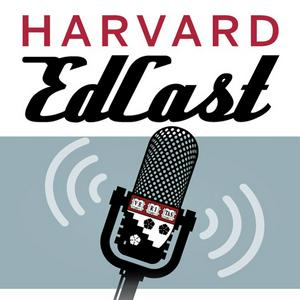
Get the free radio.net app
- Stations and podcasts to bookmark
- Stream via Wi-Fi or Bluetooth
- Supports Carplay & Android Auto
- Many other app features
Get the free radio.net app
- Stations and podcasts to bookmark
- Stream via Wi-Fi or Bluetooth
- Supports Carplay & Android Auto
- Many other app features


The Harvard EdCast
Scan code,
download the app,
start listening.
download the app,
start listening.



